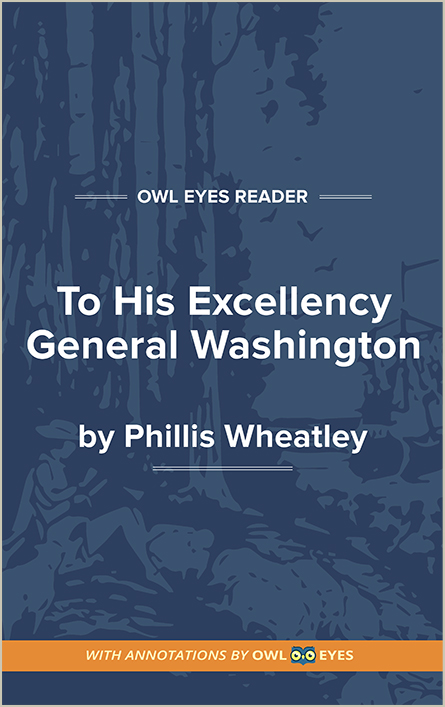- Annotated Full Text
- Literary Period: Colonial
- Publication Date: 1776
- Flesch-Kincaid Level: 7
- Approx. Reading Time: 1 minute
To His Excellency General Washington
Phillis Wheatley was one of the foremost American poets during the era of the Revolutionary War. Born in Senegal in 1753, Wheatley was enslaved as a young child and shipped to Boston, where she was bought by the Wheatley family. The Wheatleys quickly recognized Phillis’s intelligence and provided her with a classical education. At just twenty, Wheatley published her first collection of poetry, making her the first African American in history to be published. Her poetry attracted the attention of eminent figures, from King George III to Benjamin Franklin. In 1776, Wheatley wrote “To His Excellency General Washington,” an inspiring address to George Washington which praises the American Revolution as a virtuous cause. A neoclassical poet to the core, Wheatley’s work incorporates both allusions to Greco-Roman mythology and concepts from classical philosophy into meditations on her contemporary world. In that vein, Wheatley invented a classically styled goddess of the American Revolution named “Columbia,” an embodiment of freedom. Columbia first appeared in “To His Excellency General Washington” and quickly entered into American popular culture and lore. The poem is both an important piece of American history and an imaginative, skillfully crafted ode. As George Washington wrote to Wheatley in response to the poem: “however undeserving I may be of such encomium[...] the style and manner exhibit a striking proof of your great poetical Talents.”
- Annotated Full Text
- Literary Period: Colonial
- Publication Date: 1776
- Flesch-Kincaid Level: 7
- Approx. Reading Time: 1 minute

